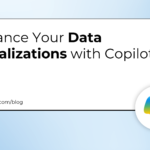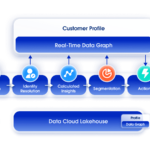Nicole L. Rose is a lead front-end Commerce Cloud developer and architect at Capgemini North America. Her career in Salesforce Commerce Cloud spans more than 12 years during which time she’s worked with iconic brands like Diane von Furstenberg, Yeti, Dooney & Bourke and PGA Superstore. Prior to her work in enterprise-level e-commerce, Nicole worked with ODM Inc., McKinsey & Company and The New York Times. Her breadth and depth of experience has created for a seasoned, grounded perspective of a professional who knows how to navigate change, market disruption, and the ups and downs of a storied career in tech. Lately, Nicole has been deep in composable commerce projects, building modules and components with React, and custom implementations with page designer. She finds joy and purpose in mentoring and managing junior developers as they navigate their way through building, innovating, and delivering new features.
We caught up with Nicole to chat about her projects and perspectives. Here’s our conversation, lightly edited for clarity and conciseness.
Q: It’s a very disruptive moment in commerce right now. As an engineer, how are you thinking about AI and navigating all the change?
A: How I approach AI and integrate it into what I do definitely evolves on a daily basis. Lately, I predominantly use AI as a coach. For example, if I’m doing some type of system debugging and my debugger isn’t returning the answer I need, I’ll start a voice prompt to talk through the problem with AI. When I talk through an issue this way, I can often see, “Hey, I’m actually down the wrong rabbit hole here. I need to switch focus.” It’s a good aid and a huge time saver.
I also use code assist tools quite a bit these days. In fact, I rarely scaffold anything from scratch anymore. The thing I’m most interested in is: How do we really codify and make a process out of augmented engineering? Not: How do we replace developers? Developers are not machines. They’re not fungible resources. AI in engineering isn’t about getting rid of engineers or developers. It’s more about how engineers harness this technology in a way that makes everybody more productive and the outcome more satisfying — and the actual process more enjoyable. So I’m exploring that right now, and I think that’s where agents come in.
I do a lot of basic agent building these days and use different APIs to integrate different sequences of events. Right now, I’d say I’m in a learning phase. During the learning phase, outcomes might not be as tangible; it’s a type of exploration and I think some amazing things are going to come out of it.
Q: What do you think the most challenging aspect of your job is right now, and how do you overcome it?
Working in development and engineering means that you’re always going to be confronted with new technology and things you just don’t know how to do — no matter how much of an expert you are. Solving for this often means digging deeper or getting help from other people or reading a lot of documentation or talking to AI about it. There’s always going to be something outside your current technical lexicon. So that’s definitely one of the inherent challenges.
I think the human mind, in general, likes comfort and we like to stay in what we know. So it takes a certain mindset to always be in a place of discomfort. As a developer, you just have to embrace living in a space like that.
Impostor syndrome can definitely crop up out of the discomfort if you let it. But I’ve learned that even more advanced folks in higher roles — both men and women — all talk about experiencing some aspect of it. Imposter syndrome is definitely not just something that’s relegated to the area of technology, but I think it comes up repeatedly in our industry.
I will say, for all the challenges I’ve faced, I don’t think there are any I’ve come up against that I haven’t been able to solve. Have I felt nervous and have I needed to exploit my resources? Yes. Have I needed to talk through things with others? Yes. Those are all humbling activities that are part of a successful process.
Q: I know you really value your role as a leader and that you’re very much a player/coach. What drives you to be a mentor, and what are your favorite aspects of it?
A: I love working with other people to solve problems, and I learn a lot from my mentees — both technically and also just general wisdom about life. I look at my mentor/mentee relationships as more of an exchange. The best part about it is that there’s an element of alchemy. Something amazing happens when you put two people together to figure out a problem.
Another aspect of mentoring that I enjoy and find really rewarding is when folks come back after a few years to say thank you, or when they mention that they learned a lot when we worked together. It’s always special to hear that and also to see mentees going on to be really successful. This is the phase of my career I’m in now, where folks I’ve encouraged and managed go on to do big, great things. It feels like that’s the part I have in passing the baton forward to the next generation of developers. They’re entering the field at a time when technology is almost at what I would consider a vertical pitch of ascent. So right now, I’m trying to pass on as much knowledge as I can.
Q: Speaking of the next generation and passing on the baton: What career advice would you give to yourself in your younger years?
A: Early on in my career, my grit and tenacity got me far, especially when I came up against a lot of obstacles. But somehow, I always had an innate belief in myself and I just kept going. I think that’s a huge thing; You’ve just got to keep going and be resilient. And that doesn’t mean just barreling through the challenges. Sometimes I’d want to give up, and maybe I would for a day, but then I’d come back. So, if I were to look back, I would say, “Don’t be so hard on yourself.” I would say be gentler and give yourself the grace to zoom out and have more of a long-term view of things.
As a woman in a male-dominated space, another thing I’d tell my younger self would be that it’s okay to not always prioritize the masculine over the feminine. I think that it’s taken me a long time to balance out my masculine and feminine in this field. Representation matters and women deserve a seat at the table, and it’s important to nurture feminine energy, especially in a male-dominated industry.
Q: You’re a founding member of the Women in Commerce group. Can you talk a bit about the group and how it began, and what it means to you?
A: We’re a dynamic, strong group of women and our roles range from solution architects to tech leads to functional architects and engineers. Every level of the Commerce Cloud spectrum is really represented. The group is meant to be a space where we can inspire each other. We meet monthly to talk about our goals, and make connections with people who can help or encourage us in them. The group is a powerful thing, especially during this time. We all know we’re in a season of disruption. Technically, markets are changing. It’s important to interact with people, start creating things together, and start innovating together.
Q: We’ve talked a lot about how commerce is going to change in the future. What are you most excited about and what are you most looking forward to?
A: I’ve been in commerce for a long time. I started out in Salesforce when it was Demandware, and prior to that I was working on the front end of LAMP stack and with other PHP developers working on small commerce sites. I’ve always been super excited about the ecommerce space — whether to serve small business or enterprise-level customers.
Lately, the convergence of technology and human intelligence is coming to a really exciting place, but it will mean that humans have to really do their due diligence.
One of the things I’m working on with a group of people right now is digging into how AI is going to actually change commerce as we know it. Shopper flow sequence is shifting, the role of graphical user interface (GUI) is changing as it pertains to the shopper experience with AI to API integrations. These are fundamental aspects of ecommerce, and the entire market will change as they do.
I think there’s going to be a huge shift, and now is definitely the time we should be talking with others, learning, and exploring together to see what comes out of it. I think that’s a better approach than just trying to guess precisely what’s going to happen. Nobody has a crystal ball right now, I can tell you that.
Prepare for the future of commerce
Learn how AI agents can help you
scale merchandising, streamline order management, and increase sales.














